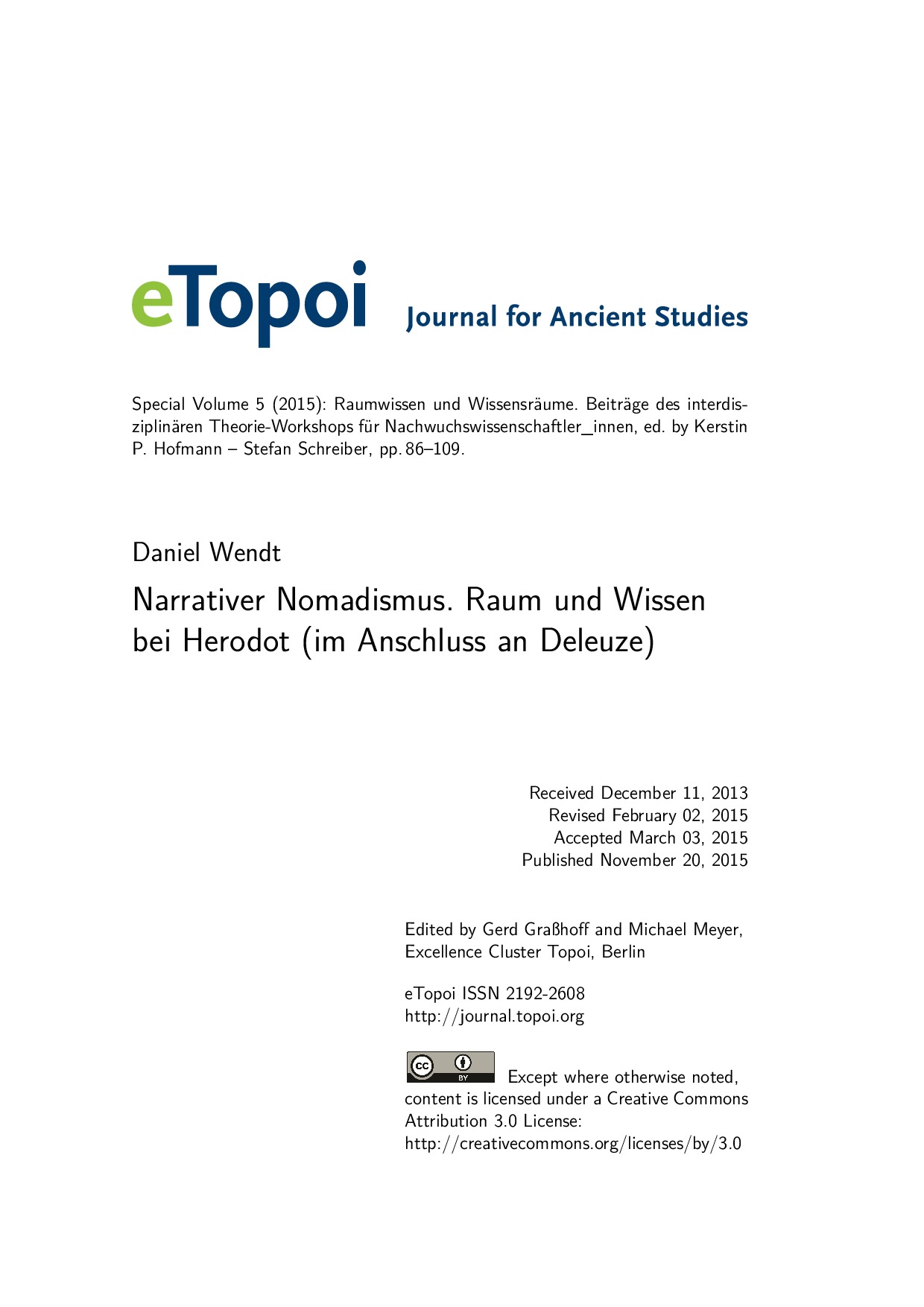Narrativer Nomadismus. Raum und Wissen bei Herodot (im Anschluss an Deleuze)
In the Treatise on Nomadology in Thousand Plateaus (1980) Gilles Deleuze and Félix Guattari develop nomadism as a spacial and epistemological concept. ‘Nomadic science,’ they say, offers an event orientated access to knowledge through another relation to space and thus resists to the reproduction of stereotype discourses. The paper transfers nomadology to narratological questions and analyses some programmatic passages from Herodotus’ histories regarding the connection of space, knowledge and text. Verbs of going, seeing and hearing are of great significance within these scattered methodological statements. Herodotus stages his research as virtual journey through different places of knowledge. He presents, I would argue, his own method as a nomadic track (in contrast to didactic poetry). This leads to a different narrative and epistemic approach, towards a cartography of knowledge. Finally, by introducing the category of personal knowledge Herodotus creates a performative historiography.
In ihrer Abhandlung über Nomadologie in Tausend Plateaus (1980) entwickeln Gilles Deleuze und Félix Guattari Nomadismus als raumtheoretisches und epistemologisches Konzept. Die ‚nomadische Wissenschaft‘ bietet einen ereignisorientierten Zugang zum Wissen über ein anderes Verhältnis zum Raum und setzt sich so der steten Reproduktion eines stereotypen Diskurses entgegen. Der Beitrag überführt die Nomadologie in narratologische Fragestellungen und analysiert programmatische Passagen aus Herodots Historien in Hinsicht auf die Verbindung von Raum, Wissen und Text. Von besonderer Bedeutung sind in Herodots verstreuten methodischen Aussagen Verben des Gehens, Sehens und Hörens. Herodot inszeniert seine Forschungen als virtuelle Reise durch verschiedene Wissensräume. Er präsentiert, so die These des Beitrags, seine Methodik (im Gegensatz zur epischen Lehrdichtung) als nomadischen Weg, was sowohl narrativ als auch epistemisch zu einer Kartographie des Wissens führt. Nicht zuletzt durch die Kategorie des persönlichen Wissens schafft Herodot schließlich eine performative Geschichtsschreibung.

